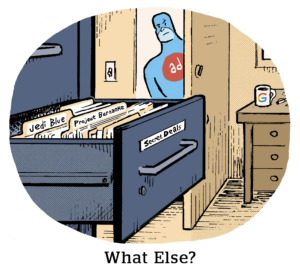The mobile marketing landscape is changing. While many marketers are focused on getting back to business as usual, the reality is the world has changed. The playbook they leaned on in the past is in need of evolution.
I love sports analogies, and the idea of a playing field is particularly appropriate. The playing field in mobile is shifting dramatically as macroeconomic conditions create headwinds and anxieties for the industry.
The rules are changing, as well. The shift toward greater consumer privacy, first-party data, the deprecation of cookies and technical challenges surrounding attribution are all creating a new dynamic for agencies and marketers.
But marketers are still playing to win – the demand for business growth is still there.
Lately, I’ve observed a theme of marketers taking the time to step back to reevaluate their ad tech partnerships. They want to assess which platform can bring the most value.
In my opinion, this assessment is a very good thing.
As a well-known marketing leader mentioned to me last week, “We all have to think about our ad tech partnerships as if one is putting together a roster of top-tier players (vendors) to make sure they (marketers) have a team that can win in this new environment.”
Building your roster: integrating the ecosystem
Marketers are getting hit from both ends: tightening budgets on one side and business demands growing on the other side.
After a few years of big spending, marketers want to make every cent of marketing spend show incremental results, reduce waste and drive more value. Very reasonable.
The industry as a whole is putting efficiency and effectiveness back in the spotlight.
Execution matters. Efficiency and effectiveness rely on a foundational level on well-integrated brand and performance marketing.
Marketers need the ability to track and validate results across campaigns and media and pull actionable insights out of a broad and deep pool of data in a full-funnel manner.
Bringing back the team analogy, ad tech players (partners/vendors) also need to work together as a seamless unit, but also unselfishly pass the ball (insights) to clients in order to win together.
This team must focus on creating an environment of value for marketers.
Playing as a team: Consolidation does not automatically deliver value
Following the natural market maturity cycle, the tech world is seeing rapid consolidation.
Big players are buying up smaller players in order to expand capabilities and hit business growth targets.
But market consolidation does not automatically deliver integrated value for marketers.
Back to the sports analogy, you can bring a bunch of great players together. But that doesn’t mean they will (or even can) play well together to achieve that goal of winning a championship.
Many marketers I talk to have some cynicism around consolidated offerings. “Great, you have all these new assets,” they think. “But what does that mean for me? How does that help me increase sales, acquire more users, drive brand awareness and create business value?”
Coaching matters: Consultative expertise needed
Many of the tech-driven point solutions and startups in the mobile marketing space ultimately fall short. They lack the breadth of resources or consultative expertise to create an environment that is both holistic and bespoke.
Unfortunately, some take a one-size-fits-all approach, failing to account for the unique needs and goals of their agency and marketing clients. They also fall short in being able to create a valuable environment where marketers can glean new insights or learn from peers who are subject-matter experts.
Learn from the pros: Look to leading peers
In business or sports, one of the best ways to improve is to follow proven success.
This approach is particularly valuable as we navigate changes to the rules that throw old best practices out the door.
Marketers must look to leading peers who are pioneering new strategies and building out new rosters to win in this changing environment.
At Liftoff, we created our Mobile Heroes program to help mobile marketers connect with peer-driven insights and best practices.
The program has grown into a global community of more than 3,600 professionals across the mobile marketing ecosystem, who are experts in mobile marketing, monetization, game development and more.
Our clients are not only learning from each other, but many have commented that it’s been of tremendous value for them professionally.
I try to practice what I preach, so I sat down with one of our Mobile Heroes, Agustin Ochoa, senior performance manager at Winclap, to get his thoughts on how agencies can build out a future-ready ad tech roster.
Agustin manages Winclap’s consultative media buying solution, which combines media, creative and tech so Winclap clients scale on mobile.
“In this industry, you should be constantly rethinking your ad tech ecosystem, and constantly auditing and re-auditing your partners to make sure they’re delivering incremental value,” he told me.
Beyond the hard numbers, how should agencies go about building their “dream team” of ad tech partners? Agustin echoed a lot of what I’ve already said here, like finding integrated tech and the consultative expertise to back it up.
But he ultimately said values should drive the decision: “Marketers need partners that align with their own client-focused values,” he said, “For example, we want to be fully transparent with our clients – to give them full visibility that the results we’re delivering really are incremental. We can’t be transparent for our clients unless our partners are transparent with us.”
In a complicated ecosystem, where plenty of players are hyper-focused on their own top-line revenue, marketers need ad tech partners that are aligned on the same values and goals and committed to collective success.
As with every championship team, to keep winning, every team needs to continuously evolve to meet the demands of new environments, including constantly evaluating their roster of players.















